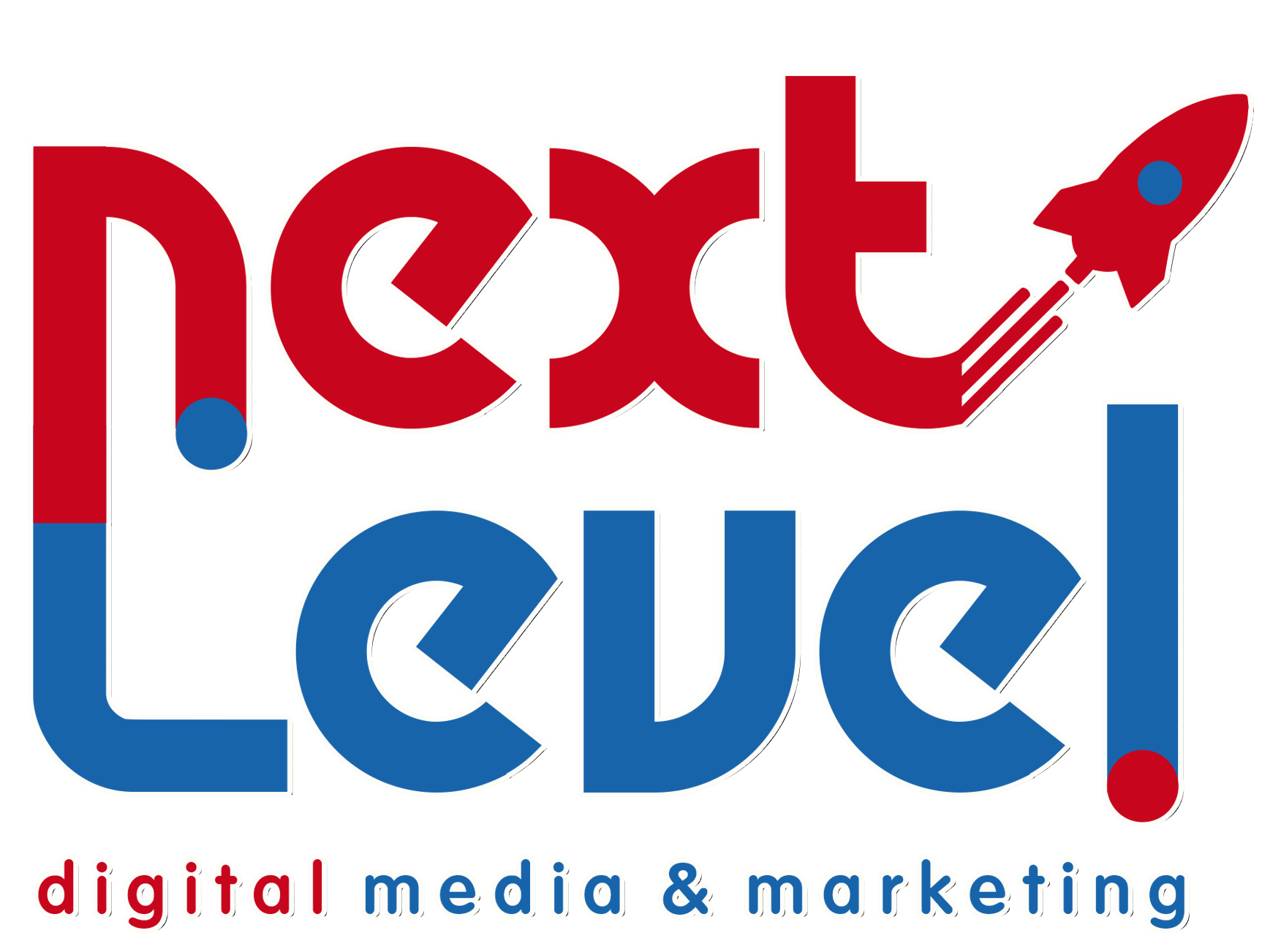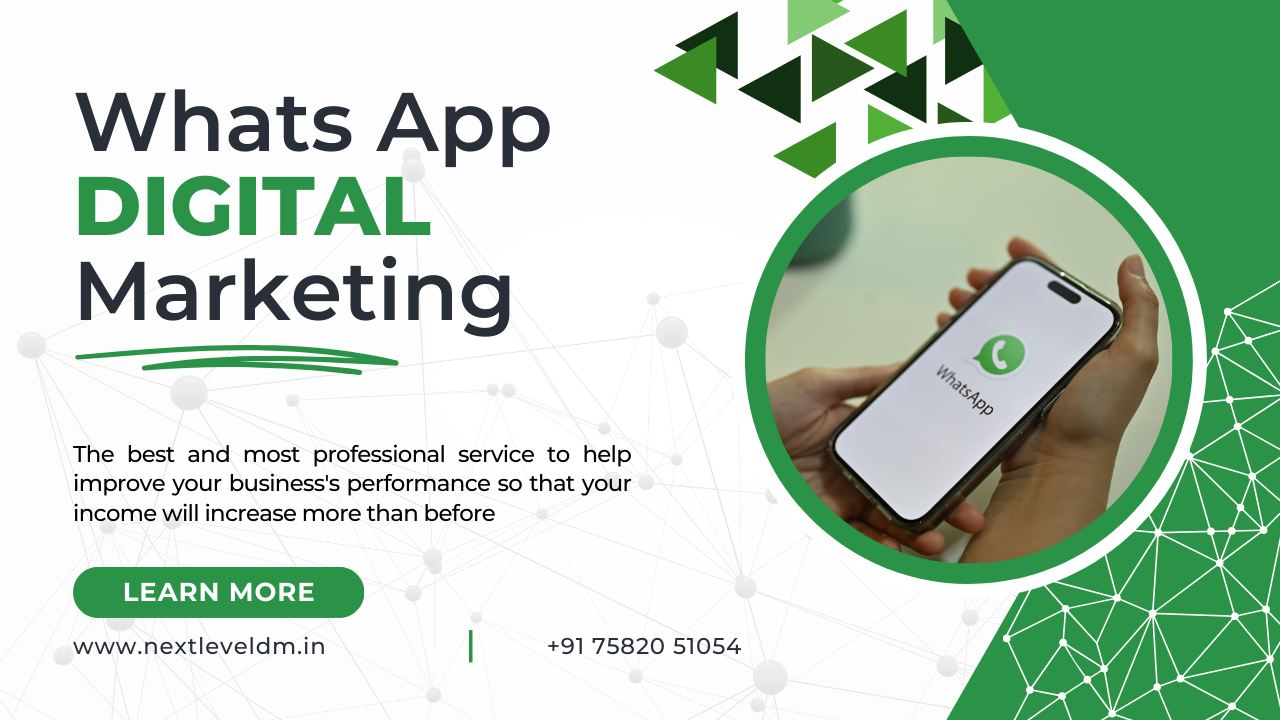WhatsApp Marketing for Hospitals and Healthcare Industry
In today’s digital landscape, effective communication is crucial, particularly in healthcare. WhatsApp marketing, facilitated by Next Level DM, is revolutionizing the way hospitals and healthcare providers engage with patients. With over 2 billion active users globally, WhatsApp offers a direct, personalized, and efficient platform to enhance patient care and streamline healthcare operations.
Benefits for Hospitals
WhatsApp marketing, powered by Next Level DM, brings numerous benefits to hospitals:
1. Enhanced Patient Communication
Hospitals can send personalized messages, updates, and reminders directly to patients through WhatsApp, ensuring timely and effective communication.
2. Appointment Reminders
Automated WhatsApp reminders reduce no-shows, helping to maintain a smooth appointment schedule.
3. Emergency Alerts
In emergencies, hospitals can quickly notify patients and staff via WhatsApp, ensuring rapid response and coordination.
4. Patient Education
Hospitals can share health tips, preventive measures, and educational content directly with patients, promoting healthier practices.
Building Patient Engagement
Engaging patients through WhatsApp, with the expertise of Next Level DM, can significantly improve patient satisfaction and outcomes:
1. Health Tips and Campaigns
Regularly sharing health tips and promoting campaigns through WhatsApp keeps patients informed and engaged.
2. Personalized Care Updates
Hospitals can send personalized messages regarding treatment plans, medication reminders, and follow-up appointments, ensuring continuous care.
3. Interactive Communication
Patients can easily ask questions and receive prompt responses through WhatsApp, enhancing their overall experience.
Appointment Management
Next Level DM’s WhatsApp marketing simplifies appointment management for healthcare facilities:
1. Streamlined Scheduling
Patients can easily book appointments via WhatsApp, with instant confirmations.
2. Automated Reminders
Automated WhatsApp reminders help reduce no-shows and keep patients on track with their appointments.
3. Easy Rescheduling
Patients can reschedule or cancel appointments through WhatsApp, improving time management for both patients and healthcare providers.
Health Risk Assessments
WhatsApp, optimized by Next Level DM, can be used for preliminary health assessments, offering valuable insights:
1. Preliminary Assessments
Patients can complete health questionnaires via WhatsApp, aiding doctors in risk assessment and care prioritization.
2. Symptom Checking
Chatbots on WhatsApp can conduct initial symptom checks, guiding patients on the next steps.
3. Data Collection
Collecting patient data through WhatsApp helps in risk stratification and timely follow-up interventions.
Patient Onboarding
Next Level DM streamlines patient onboarding through WhatsApp for a seamless experience:
1. Registration Process
Patients can complete registration forms via WhatsApp, reducing paperwork and saving time.
2. Pre-appointment Information
Providing pre-appointment details and instructions through WhatsApp helps patients prepare for their visits.
3. Guided Onboarding
New patients receive step-by-step guidance on WhatsApp, ensuring they understand the process and feel comfortable.
Privacy and Security
Maintaining patient privacy and security is paramount in WhatsApp marketing by Next Level DM:
1. Compliance with Regulations
Next Level DM ensures compliance with healthcare regulations like HIPAA.
2. Secure Communication Channels
End-to-end encryption is used on WhatsApp to protect patient data.
3. Data Protection
Next Level DM implements robust data protection measures to safeguard patient information.
Case Studies and Examples
Next Level DM’s WhatsApp marketing has delivered impressive results for hospitals and healthcare providers:
1. Reduced No-Shows
A hospital reduced appointment no-shows by 30% through automated WhatsApp reminders.
2. Improved Patient Triage
A healthcare provider used WhatsApp for preliminary health assessments, enhancing patient triaging and care prioritization.
3. Enhanced Patient Satisfaction
A clinic improved patient satisfaction by providing real-time responses to inquiries via WhatsApp.
Best Practices
To maximize the effectiveness of WhatsApp marketing for healthcare, Next Level DM recommends:
1. Effective Communication
Crafting clear, concise, and relevant messages ensures patients receive valuable information.
2. Message Frequency
Finding the right balance in message frequency prevents overwhelming patients while keeping them informed.
3. Integration with Other Channels
Integrating WhatsApp with other communication channels like email and SMS offers a seamless experience.
Future Trends in WhatsApp Marketing
Next Level DM is at the forefront of emerging trends in WhatsApp marketing for healthcare:
1. AI-driven Chatbots
Utilizing AI-driven chatbots for automated patient interactions enhances efficiency and responsiveness.
2. Telemedicine Integration
Integrating WhatsApp with telemedicine platforms enables seamless virtual consultations and follow-ups.
3. Advanced Analytics
Next Level DM leverages advanced analytics to gain insights into patient behavior and tailor communication strategies.
The Evolution of Healthcare Communication
As healthcare continues to evolve, innovative communication tools like WhatsApp, powered by Next Level DM, become essential. WhatsApp marketing for healthcare is not just a trend but a necessity in today’s fast-paced world. It allows healthcare providers to offer real-time support, streamline operations, and maintain a personal touch that enhances patient trust and satisfaction.
Conclusion
Next Level DM’s WhatsApp marketing solutions are transforming patient communication and engagement in the healthcare industry. By leveraging this powerful tool, healthcare providers can enhance patient care, streamline operations, and achieve better health outcomes. Implementing WhatsApp marketing strategies leads to more efficient appointment management, effective health risk assessments, and smoother patient onboarding processes, ultimately contributing to a more responsive and patient-centric healthcare system.


